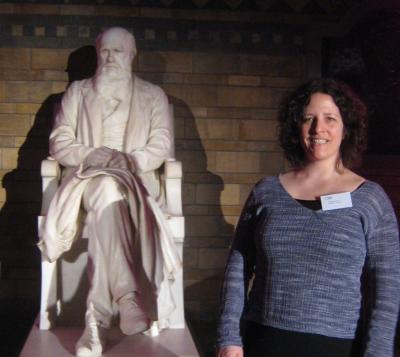 On May 22, Maine governor Paul LePage vetoed a bill which would have implemented the Next Generation Science Standards in Maine. While there were persistent rumors that his opposition stemmed from the standards coverage of evolution and climate change, the ostensible reason offered was the potential cost of implementing those standards.
On May 22, Maine governor Paul LePage vetoed a bill which would have implemented the Next Generation Science Standards in Maine. While there were persistent rumors that his opposition stemmed from the standards coverage of evolution and climate change, the ostensible reason offered was the potential cost of implementing those standards.
Last week on the 29th, the Maine House of Representatives voted to override the veto by a substantial margin, gaining 10 votes in support since their last vote. Unfortunately, the next day the Senate fell short of the necessary 2/3 supermajority, and the standards effort will be shelved for the time being.
Many districts are adopting the standards on their own, which belies the concerns over the cost of these standards, and the legislature may take up the matter again in future sessions.
Maine scientist (and HMS Beagle Project co-founder) Karen James drafted this essay before the veto (submitting it to local papers during the veto override effort), urging adoption of the standards in Maine. While the effort in Maine is over for the moment, I wanted to share it in hopes that it will be useful elsewhere.
Mainers love learning about science. As a scientist at the MDI Biological Laboratory, I engage undergraduates and members of the public in my research, and I share the fun of science with K–2 students in elementary schools across Downeast Maine. In all of these settings I highlight the diverse biology of Maine’s beautiful, beloved, and economically important oceans, forests, mountains, lakes, and rivers. Once they get started, adults and children alike can’t stop asking questions about what they’re seeing, how it got to be the way it is, and how human activities might be changing it. They are empowered by the chance to do science themselves, to learn to think scientifically, and to understand where our scientific knowledge comes from.
Last week, Governor LePage vetoed a bill which would have given science teachers and students in Maine more chances to learn this way. The bill would have enacted new science standards based on a national model. The Next Generation Science Standards were developed by Maine and 25 other states, based on the guidance of the National Academy of Sciences. Many other states, from California to West Virginia, Wyoming to Rhode Island, have adopted these standards already, giving their teachers and students a chance to share textbooks and training, and to make it easy for students and teachers to adjust if they move.
I’ve seen the hunger people have to learn about how science works, and I’ve seen how much easier it is for people to understand science when they can do it themselves. These new standards would have placed new emphasis on teaching science by doing it, rather than by memorizing facts. The beauty and power of science comes from the way it lets us gather new knowledge, not just the collection of knowledge it has already produced.
Sharing these tools of discovery isn’t just good for science, it’s vital for the future of Maine. Maine’s businesses lined up behind these new standards because they need workers with those skills. Managing our fisheries, forests, and agricultural resources in the face of climate change and other environmental changes will require a generation of new citizens who have studied climate change, a topic at the core of the new standards. The tourism industry, too, relies on the millions of people who visit Maine every year to enjoy the natural environments we are so fortunate to call “home”. Keeping these environments healthy and resilient includes understanding and mitigating the effects of human activity.
Medical research is not only important for Mainers’ health, it is also increasingly important to Maine’s economy as the biomedical research industry continues to grow and create new jobs. Recognizing this, Mainers voted “yes” in November on two ballot questions to support biomedical research in Maine and to train and expand Maine’s biomedical workforce. Much of this research uses “animal models” like worms, flies, fish, and mice to understand our own basic biology and come up with new treatments for diseases. This is only possible because we are related to these animals and we share the same biological toolkit (our genes), modified through the process of evolution—another topic at the center of these standards. Because of evolution, we can use these animals to study the processes that go wrong when we get sick and as we grow older.
While some may harbor ideological objections to evolution and climate change, there is no denying their important role in securing a healthy and prosperous future for Mainers.
Luckily, Governor LePage’s veto isn’t the end of the story for these new science standards. The legislature voted to adopt the standards by a wide margin. When the bill comes back before them [which will now have to be in a future session —JR], I hope that the legislature will muster the 2/3 majority needed to override the veto and bring Maine the same great science education standards that so many other states have already adopted.
